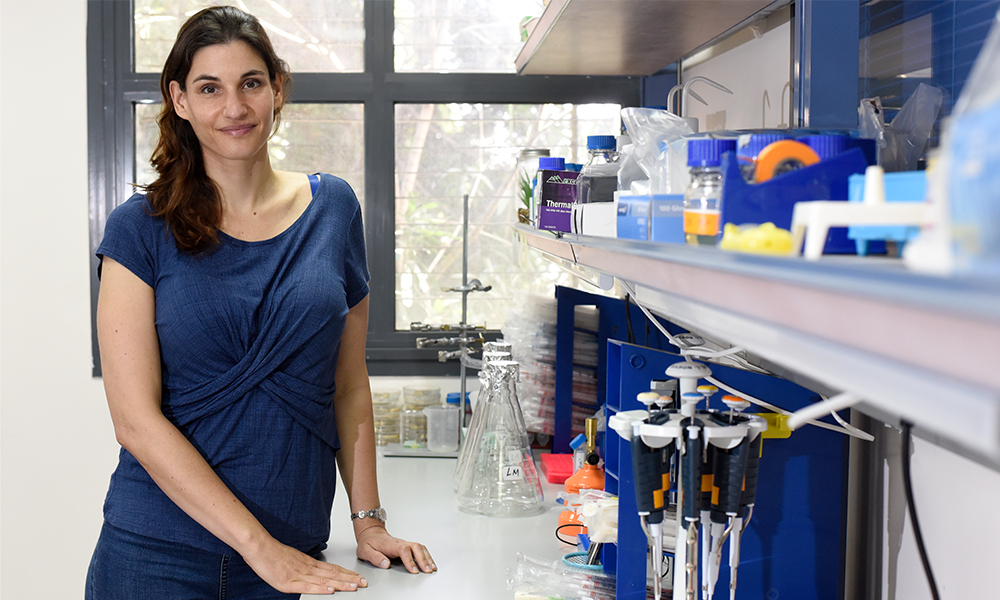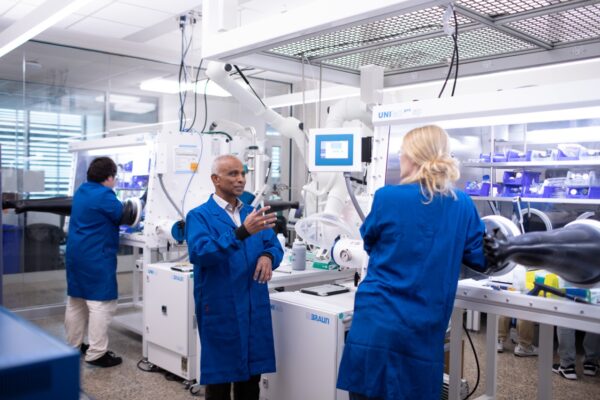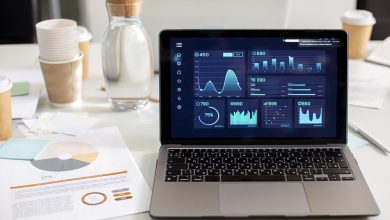How Laboratory Balances are Revolutionizing Quality Control in the Pharmaceutical Industry

Introduction
The pharmaceutical industry is a field where precision, accuracy, and reliability are not just desired but essential. Ensuring that every batch of medicine produced meets the highest standards of quality is a non-negotiable requirement. One of the key tools enabling this high level of quality control is the laboratory balance. These sophisticated instruments have revolutionized the way pharmaceutical companies conduct quality control, ensuring that every measurement is precise, and every product is safe and effective.
Overview of Laboratory Balances in the Pharmaceutical Industry
Laboratory balances play a crucial role in the pharmaceutical industry. They are designed to provide highly accurate measurements of mass, which is essential for everything from the formulation of drugs to the verification of their composition. The precision of these balances ensures that even the smallest deviations in measurements are detected, making them indispensable in maintaining the integrity of pharmaceutical products.
Types of Laboratory Balances Used in Pharmaceuticals
The pharmaceutical industry utilizes various types of laboratory balances, each suited to specific tasks:
- Analytical Balances: These balances are designed for tasks requiring extreme precision, offering readability up to 0.1 mg. They are essential for quantitative chemical analysis in drug formulation and testing.
- Microbalances: Microbalances provide readability down to 1 µg, making them ideal for ultra-fine measurements in research and development where precision is paramount.
- Precision Balances: Offering a higher capacity with excellent precision, these balances are used for measuring larger quantities of materials with the required accuracy in quality control processes.
Advanced Technology in Laboratory Balances
Modern laboratory balances used in the pharmaceutical industry are equipped with cutting-edge technologies to enhance their performance:
- Electromagnetic Force Compensation: This technology ensures that measurements remain highly accurate by compensating for any changes in the force during the weighing process.
- Automatic Internal Calibration: This feature allows balances to recalibrate themselves automatically, ensuring consistent accuracy over time without the need for manual intervention.
- Digital Interfaces: User-friendly digital interfaces allow for easy operation, reducing the chances of human error and making the weighing process more efficient.
Ensuring Accuracy in Pharmaceutical Quality Control
Accuracy in measurements is paramount in the pharmaceutical industry, where even the smallest error can have significant consequences. Laboratory balances are designed to deliver unmatched precision, with features like high-resolution sensors and environmental controls to minimize external interferences. These balances ensure that every measurement is consistent, reliable, and in line with industry standards, which is crucial for maintaining the quality of pharmaceutical products.
Reliability and Durability
Laboratory balances used in the pharmaceutical industry are built to last. They are constructed using high-quality materials that withstand the rigors of daily use in demanding environments. This durability ensures that the balances maintain their accuracy over time, making them a valuable investment for any pharmaceutical company. Moreover, their ergonomic design makes them user-friendly, reducing the likelihood of user error during extended periods of operation.
Applications and Benefits in the Pharmaceutical Industry
Laboratory balances are indispensable in various pharmaceutical applications:
- Formulation Development: Ensures precise measurement of active ingredients, which is critical for the development of effective pharmaceutical formulations.
- Quality Control: Vital for verifying the composition of drugs and ensuring that each batch meets stringent quality standards.
- Research and Development: Provides the precise data needed for innovative drug research and development.
Compliance with Industry Standards
Laboratory balances in the pharmaceutical industry must comply with stringent industry standards, such as GLP (Good Laboratory Practice) and GMP (Good Manufacturing Practice). These standards ensure that the balances provide accurate measurements and that the processes they are used in are reliable and reproducible. Compliance with these standards is essential for any pharmaceutical company that wants to maintain its reputation for quality and safety.
The Role of Innovation in Laboratory Balances
The field of laboratory balances is continuously evolving, with manufacturers incorporating the latest technologies to meet the growing demands of the pharmaceutical industry. Innovations such as enhanced digital interfaces, improved sensor technology, and more robust construction materials ensure that laboratory balances continue to set new standards for precision and reliability in quality control processes.
Case Studies and Testimonials
Numerous pharmaceutical companies have experienced the benefits of using advanced laboratory balances in their quality control processes. Success stories highlight how these balances have helped improve product consistency, reduce waste, and ensure compliance with regulatory standards. Testimonials from industry professionals emphasize the reliability and accuracy of these instruments, reinforcing their essential role in pharmaceutical quality control.
Comparison with Other Measurement Tools
When compared to other measurement tools, laboratory balances stand out due to their exceptional accuracy, durability, and advanced features. While other tools might offer basic measurement capabilities, laboratory balances provide the precision required for pharmaceutical applications. Their superior technology and robust construction make them the preferred choice for quality control in the pharmaceutical industry.

Maintaining and Calibrating Laboratory Balances
To ensure ongoing accuracy, laboratory balances must be regularly maintained and calibrated. Routine checks and professional calibration services help maintain the optimal performance of these instruments. Additionally, many laboratory balances come equipped with automatic internal calibration features, which further reduce the need for manual calibration and ensure consistent accuracy over time.
Customer Support and Service
Manufacturers of laboratory balances offer comprehensive customer support, including warranties and after-sales service. Their technical support teams can assist with any issues that arise, ensuring that pharmaceutical companies can rely on their balances to maintain quality control.
Sustainability in Laboratory Balance Manufacturing
In response to growing environmental concerns, manufacturers are adopting sustainable practices in producing laboratory balances. Energy-efficient designs and eco-friendly manufacturing processes are increasingly being implemented, aligning with global efforts to reduce the environmental impact of industrial operations.
Conclusion
Laboratory balances have revolutionized quality control in the pharmaceutical industry. Their advanced technology, exceptional accuracy, and robust construction make them essential tools for ensuring the safety and efficacy of pharmaceutical products. As the industry continues to evolve, these balances will remain at the forefront of quality control, helping pharmaceutical companies meet the highest standards of precision and reliability.
FAQs
- Why are laboratory balances critical in the pharmaceutical industry? Laboratory balances provide the precision required for accurate drug formulation and quality control, ensuring that every product meets stringent standards.
- How often should laboratory balances be calibrated? Regular calibration is recommended, depending on usage and environmental conditions. Many balances also feature automatic internal calibration to maintain accuracy.
- Can laboratory balances be used in harsh environments? Yes, many laboratory balances are designed to perform reliably in various environmental conditions, including high temperatures and vibrations.
- Are there specific training programs for using laboratory balances? Manufacturers typically provide comprehensive user manuals and technical support, with additional training programs available upon request.
- How do laboratory balances contribute to sustainability? Modern laboratory balances incorporate energy-efficient designs and are produced using eco-friendly manufacturing processes, contributing to environmental sustainability.




